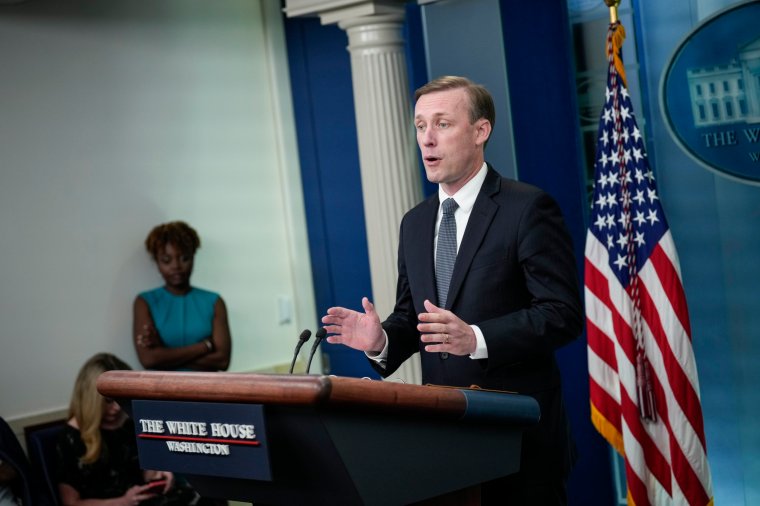The United States will supply Ukraine with widely-banned cluster bombs for its counter-offensive against occupying Russian forces.
Cluster bombs – which are banned by more than 100 countries – release large numbers of smaller bomblets that can kill indiscriminately over a wide area.
Those that fail to explode pose a danger for decades after a conflict ends.
Rights groups and the United Nations secretary-general questioned Washington’s decision on the munitions, which are part of an $800 million security package that brings total US military aid to more than $40 billion since Russia’s February 2022 invasion of Ukraine.
Russian President Vladimir Putin, who describes the conflict as a “special military operation” to protect Russian security, has accused the US and its allies of fighting an expanding proxy war.
The cluster munitions “will deliver in a time frame that is relevant for the counteroffensive,” a Pentagon official told reporters.
“Ukraine has provided written assurances that it is going to use these in a very careful way” to minimise risks to civilians, White House national security adviser Jake Sullivan said.

US President Joe Biden described the decision on cluster bombs as difficult but said Ukraine needed them.
“They’re trying to get through those trenches, and stop those tanks from rolling,” Biden said in an interview with CNN. “It was not an easy decision.”
Grigory Karasin, head of the international committee in Federation Council, Russia’s upper house of parliament, raised “serious concerns” about decisions by Washington and the NATO leadership, RIA news agency reported.
It quoted Karasin as saying that Russia “of course, will respond to this.”
Ukraine says it has taken back some villages in southern Ukraine since the counteroffensive began in early June, but that it lacks the firepower and air cover to make faster progress.
“It’s too early to judge how the counteroffensive is going one way or the other because we’re at the beginning of the middle,” Colin Kahl, the US under secretary of defense for policy, told reporters.
It comes as Ukrainian President Volodymyr Zelensky visited the Czech Republic, Slovakia and Turkey a day after talks in Bulgaria to drum up support for NATO membership before the alliance’s 11-12 July summit.
In Prague, he won a pledge of support for Ukraine to join NATO “as soon as the war is over”, and in Sofia secured backing for membership “as soon as conditions allow.”
North Atlantic Treaty Organization Secretary-General Jens Stoltenberg reaffirmed his view that Ukraine would become a member.
“Our summit will send a clear message: NATO stands united, and Russia’s aggression will not pay,” Stoltenberg said at a news conference in Brussels.
It remained unclear, however, what Ukraine will be offered next week at the summit in Vilnius, the Lithuanian capital.
The alliance is divided over how fast Ukraine should move towards membership, and some countries are wary of any step that might take NATO closer to war with Russia.
Mr Zelensky has acknowledged that Kyiv is unlikely to be able to join NATO while at war with Russia. Putin has threatened unspecified action if Ukraine joins NATO.
Additional reporting by Reuters



Maurice Saatchi: I used to adore capitalism – then I had lunch with Margaret Thatcher